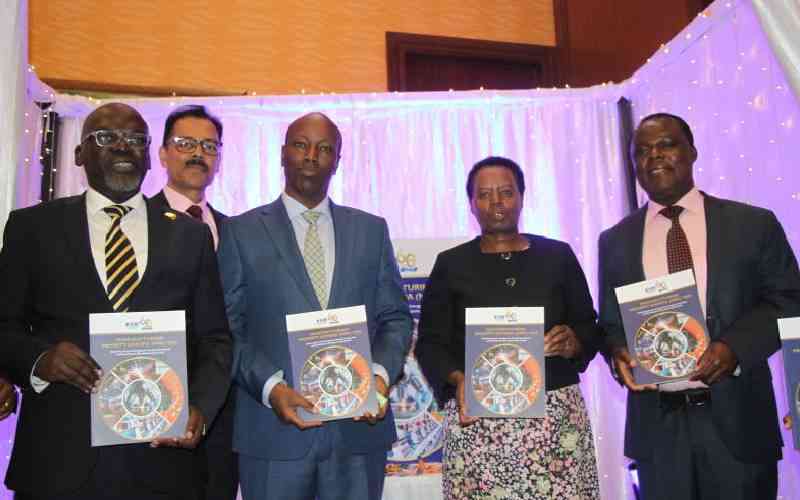Take action to stem flow of dirty cash into Kenya
Editorial
By
Editorial
| Nov 13, 2024

A report by Kenya’s Financial Reporting Center indicates that more than 6,600 suspicious transactions were recorded in the country last year, a 12 per cent rise from 2022.
The money finds its way through several sectors including real estate, retail and entertainment among others, with the full or tacit cooperation of commercial banks, investigators, lawyers and regulators.
The situation is so bad that Kenya has been placed on the ‘grey list’ of the global Financial Action Task Force (FATF) as one of the jurisdictions under increased monitoring for systemic gaps that weaken the global fight against money laundering, terrorist financing and illicit financial flows.
READ MORE
Kenya engages US to safeguard exports amid Trump's tariff war
Sustainability core to future of Africa insurance industry
COMESA unveils plan to transform Africa's leather industry
How Nairobi-Addis deal is fuelling surge in Kenya's electricity imports
Family Bank profit jumps 38pc to Sh3.4b on higher interest income
Industry leaders, managers urged to support employees' ambitions
Money trap: Why many Kenyans struggle to grow wealth
Traders feel pinch of Sudan tea export ban
Smaller lenders lead in cheap loans as costs fall marginally
Auto dealer Caetano banks on Chinese brand to boost locally assembled vehicles
Unfortunately, Kenya’s grey-listing by the FATF barely caused a ripple in government circles, even as the National Treasury was extending the begging bowl to the IMF for more loans.
An assessment conducted in 2022 found that despite having legislation in place for anti-money laundering and combating of terrorism financing Kenya still has gaps, limiting the compliance and effectiveness of these laws. The country has also been cited as a route through which money pilfered from countries experiencing governance challenges including Somalia, Sudan and DRC are laundered and repatriated to off-shore sources.
Illicit financial flows have a debilitating impact on economies. Kenyans have long believed that the country’s property market, particularly in Nairobi and other large towns, is largely distorted by capital from questionable sources. Economists also say that money laundering has disproportionately affected the economy and driven up prices across all sectors. It has artificially distorted the value of the shilling and compromised government service delivery.
As the government pushes ahead with its ambition to attract new foreign direct investment, it is crucial to review and update the Proceeds of Crime and Anti-Money Laundering Act 2009 to today’s realities.
The investigative agencies also owe it to Kenyans to ensure those implicated in corruption are prosecuted and their ill-gotten wealth seized and repatriated back to the taxpayers.

